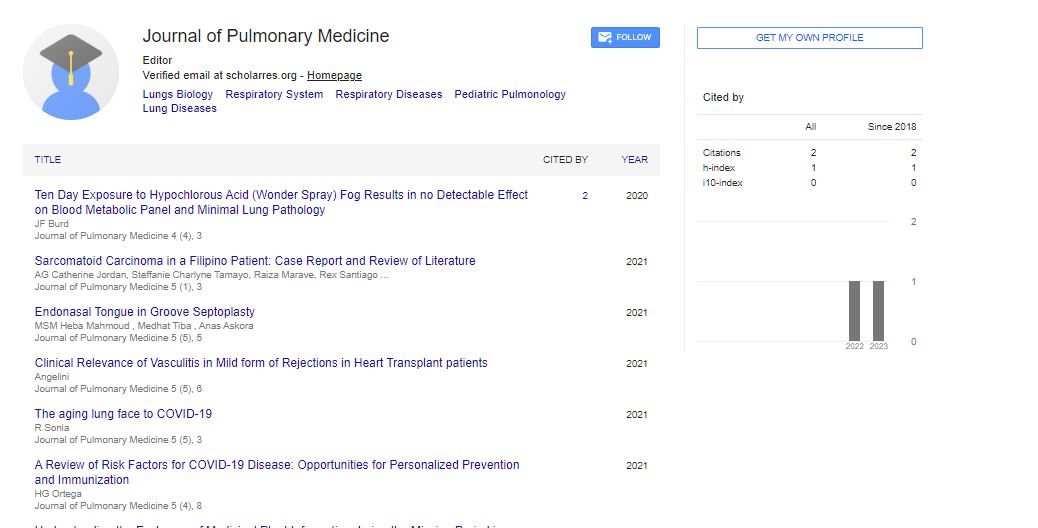SWIPER DEVICE (SELF WORKING WATER BASED INSTRUMENT FOR POSITIVE EXPIRATORY PRESSURE BY RESISTANCE) AND ITS EFFECTIVENESS IN IMPROVING OXYGENATION IN ACUTE PULMONARY EDEMA, DURING THE COVID 19 PANDEMIC: A PILOT STUDY
Dr Akhil Paul, MD, DNB, FCCP, FAPSR
Interventional Pulmonologist, Sleep Medicine and Critical Care Consultant, MOSC Medical Mission Hospital,
Thrissur, India
: J Pulm Med
Abstract
About 20% to 67% of COVID 19 infected patients who are admitted to the hospitals and 100% of mechanically ventilated patients suffer from Acute Respiratory Distress Syndrome. Extrinsic Positive Expiratory Pressure can improve the oxygenation by direct and indirect mechanisms, thus reducing the need of medical oxygen. But high-budget and sophisticated machines are required to provide this positive airway pressure, adding on to the treatment cost of the patient and investment expenditure by the healthcare facilities. We have designed a simple self working device which can provide a positive expiratory pressure. The lower part of this device works with the same principle of a ‘Bubble- PEP’ device. Thus this device can be considered as a bubble PEP device with a modified interface. We call this device ‘ SWIPER’ device (Self working Water based Instrument for Positive Expiratory pressure by Resistance). We are hereby presenting the results of the pilot study in view of the importance of this device in the current scenario. The device was introduced on fifteen patients who were selected after applying the inclusion- exclusion criteria of the study. The mean age of the study group was 65 years (Men- 64 years, Women- 66 years). Eight of them had cardiogenic pulmonary edema whereas seven of them had nephrogenic pulmonary edema. The median baseline SpO2 level was 90% (86%, 94%) and the median plateau SpO2 level after using the SWIPER device was 94% ( 91%, 99%) (*p value <0.001). The mean rise in SpO2 on using the device was 6% (1.89) which was clinically significant. SWIPER device is effective in significantly increasing the SpO2 in patients with acute pulmonary edema by providing a positive expiratory pressure and it can be used in managing such patients in resource limited settings and also to significantly reduce the medical oxygen consumption in managing such patients.
Biography
Dr Akhil Paul has completed his MBBS and MD from the prestigious Christian Medical College, Vellore, India. He has been awarded a Fellow by the College of Chest Physicians, USA as well as the Asian Pacific Society of Respirology. He is currently working as the interventional pulmonologist, critical care and sleep medicine consultant in a mission hospital and he has authored multiple text books and referrence guides in Pulmonology. He has published more than 15 scientific articles in indexed journals. He was a core comittee member in preparing the Indian national guidelines in the pleural effusion management.
 Spanish
Spanish  Chinese
Chinese  Russian
Russian  German
German  French
French  Japanese
Japanese  Portuguese
Portuguese  Hindi
Hindi 